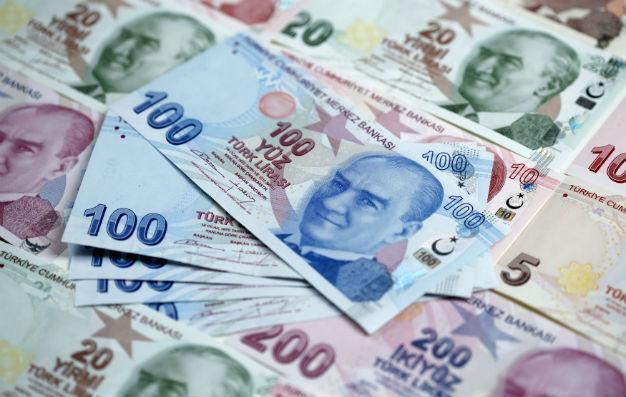Turkish Lira slips for fourth consecutive day on China worries
ANKARA - Reuters

REUTERS photo
Turkey’s lira slipped to a new three-month low on Jan. 7, after North Korea made a nuclear test and Beijing guided the yuan lower, prompting concerns about the state of the Chinese economy and triggering an emerging market sell-off.
The lira has been particularly vulnerable to changes in global sentiment since last month when the Central Bank left interest rates unchanged contrary to expectations of a hike, renewing fears about the rate setter’s independence.
In its fourth consecutive daily decline, the currency weakened as far as 3.0280 against the dollar on Jan. 6, weakest since Oct. 2, 2015, before edging back to 3.0168 by 10:25 GMT, compared with 3.0069 late on Jan. 6.
In a presentation released on Jan. 7, Central Bank Erdem Başçı said the bank may start monetary policy simplification steps at its Jan. 19 meeting if there is a lasting decline in market volatility.
Markets fear that Beijing, in a bid to boost exports, is allowing the yuan’s depreciation to accelerate, meaning the world’s second biggest economy is in worse shape than previously thought. The worry is that the effect could be amplified further if other countries follow suit in a bid to compete.
China let the yuan slip on Jan. 7, sending regional currencies and stock markets globally tumbling as the offshore yuan fell to its lowest since trading started in 2010. China’s stock markets were suspended less than half an hour after opening, the second emergency suspension this week.
Deniz Çiçek, economist at Finansbank said concerns about China and the yuan depreciation in the yuan hit all emerging market currencies badly this week.
Amid stubbornly high inflation, with consumer prices rising 8.81 percent last year, the bank is under pressure to hike rates, a move vehemently opposed by some of the country’s most influential politicians who want to protect growth.
“If the global conditions remain unfavorable and the Central Bank remains unresponsive, we may see further currency depreciation going ahead,” Çiçek added.
The main BIST 100 share index fell 1.3 percent to 70,274 points, outpacing emerging market peers which fell almost 2.5 percent.
